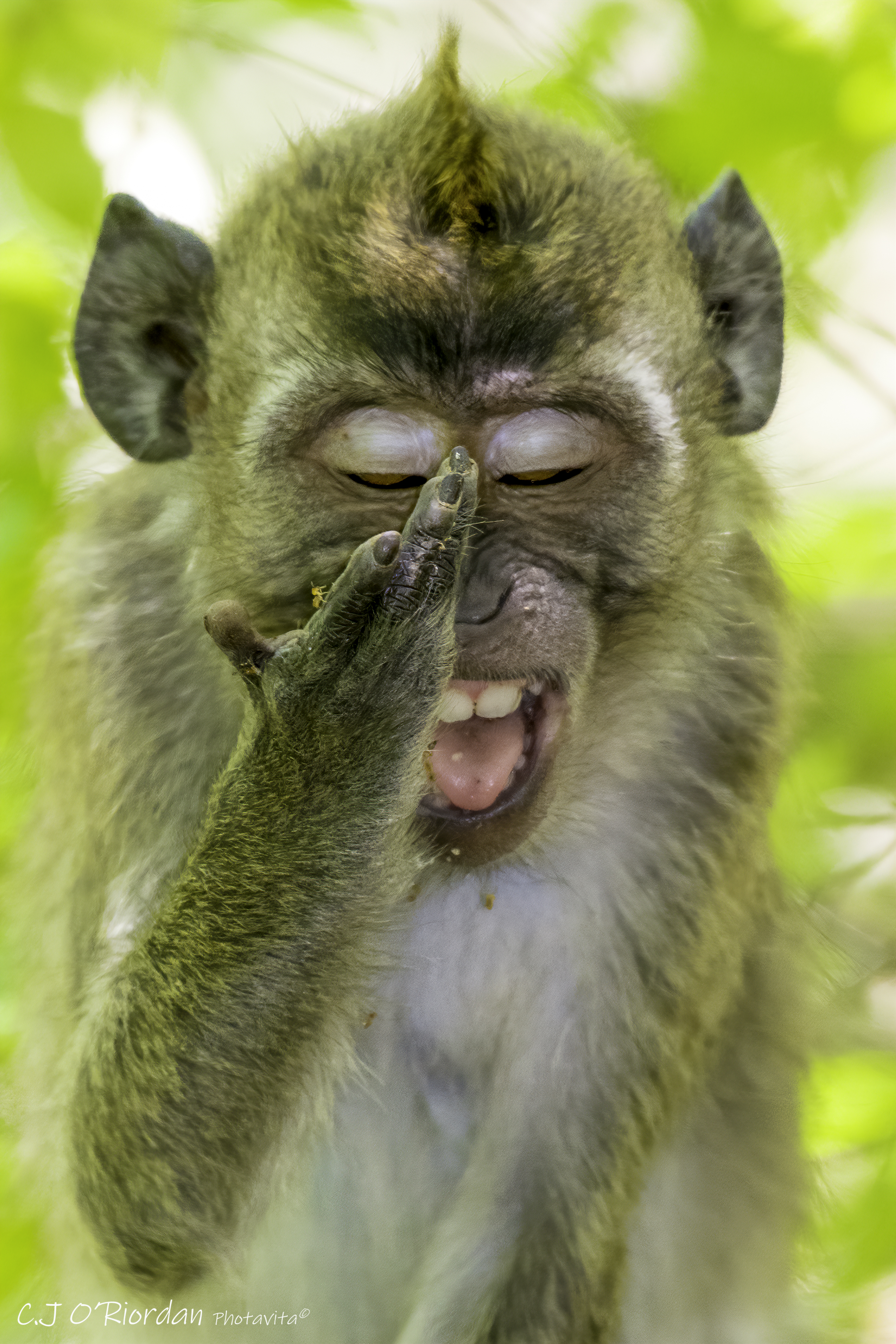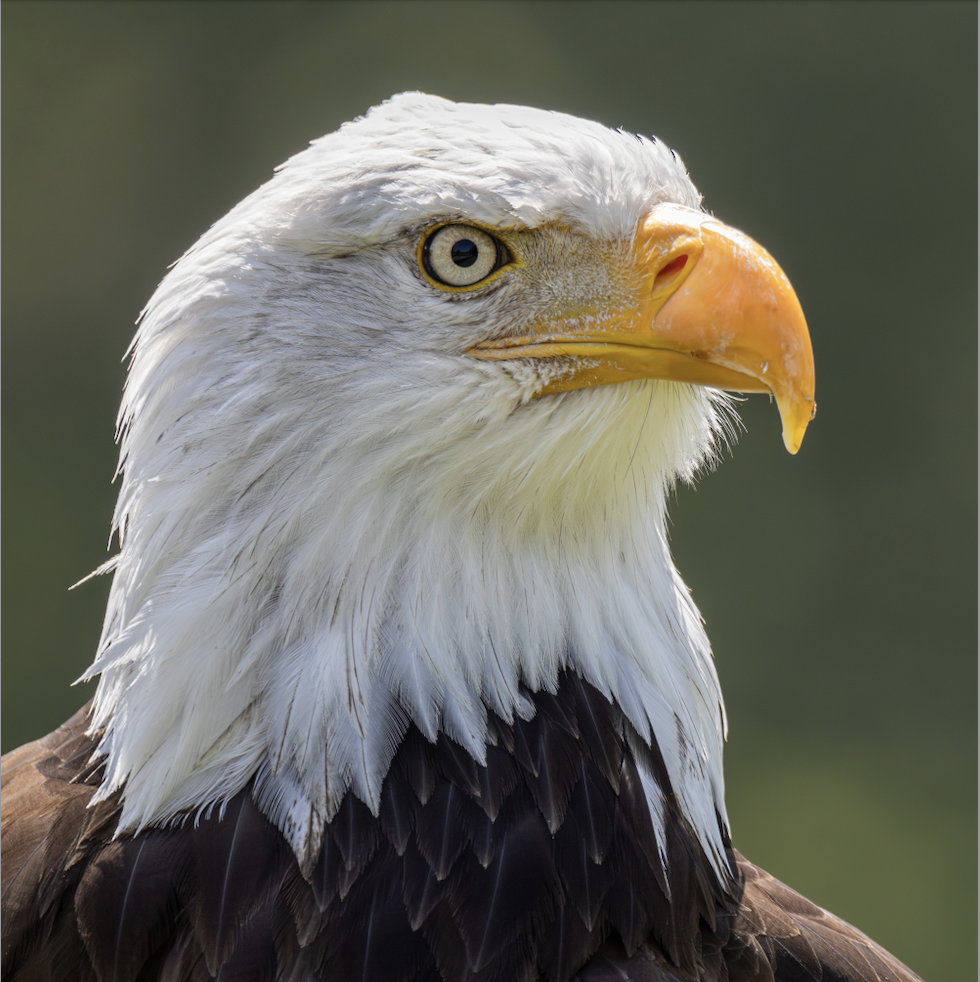Male Eurasian Chaffinch (Fringilla coelebs)
Rutland Nature Reserve, November 2019.
Nikon D7200, Nikon 200-500mm f/5.6
f6.3, 1/40s, ISO 500, 380mm
Chaffinches are one of the most common UK small birds, but ones that don’t visit my garden. So, I am always happy to have a chance to see them when I’m out and about and will always try and take a shot if an opportunity presents itself.
This one was a tricky task as sunset in mid-November in this part of the UK is 4:15pm, and it was already 4:30pm when I found the birds.
There was still a trickle of light left in the sky, cutting through the dense but almost bare trees as the birds prepared to roost.
I quickly realised I could either push the ISO to a point where the noise would really spoil the shot or attempt to shoot at a shutter speed well below the recommended 1/focal length for a long lense and ruin it with camera shake instead.
I shortened the lens to 380mm, braced myself against a tree as firmly as I could and wound the shutter speed down, watching the exposure needle creep towards the middle of the scale. Click…click…two shots and he was gone.
I looked at the exif data on the camera and saw 1/40s. I thought, that’s probably the slowest shutter speed I have ever shot with this lens. And it was, until 10 seconds later when I got a lovely shot of a Dunnock at 1/30s.
You’ve gotta love image stabilisation!


There are a bunch of them in my garden. Them, green- and goldfinches.
Very nice photo again, thank you for sharing your process and stories with your pictures!
We get goldfinches but no chaffinches or greenfinches. I don’t think there is enough woodland for them, mostly farmland, but there are a lot of teasles, which the goldfinches love for their seeds.
I would love to see any pictures you have of the greenfinches, they are such beautiful birds.
Glad you like it 😊
This is the only photo i have of any of the finches, luckily it’s a green one:
My longest lens is an old manual Nikon AI 100mm (on a m43 camera) and it’s too far away for when they’re sitting in the tree really. They don’t come to the feeder no more since i made it harder to reach for the parakeets. I am thinking about getting a longer lens though.
*sorry i have no better photo 😅
You’re doing very well with that setup, I am impressed 👍 And thanks for the photo.
I love that feeder as well, a great idea 😀 I’m not sure I wouldn’t just have a parakeet feeder if we got them regularly lol
I mean… it still is a parakeet feeder, they just don’t stay longer than a couple minutes and only one at a time. Really i just don’t want to anger the people living below me with my feeders. There’s also one feeder the parakeets can reach downstairs in the garden, but i don’t think it gets refilled much since the parakeets found it.
They still hang out in the tree right in front of me every day, last two weeks a couple’s been shagging pretty much every morning. They’re also trying to build a cave (two actually) in the insulation of a house opposite me. Now that the sun comes out sometimes, their colors really start to glow, so nice.
@AchtungDrempels @EvilTed too many big lenses. All bird habitats will be gone but everyone will own a 800mm $25k lens. Birding is not 100% about photography. Crazy to see hundreds of monster lenses looking at a zoo escape owl.
Yeah i’m certainly not going to buy a 25k lens, haha. But a bit longer than 100mm would be nice maybe.
There are many habitat restoration projects where I live. You can visit hundreds of hectares of fens and woodland within a few K’s of my home, and many more are created each year. It’s not all doom. I was a birdwatcher for decades before I picked up a camera to photograph wildlife. It was a way to remember some of the beautiful things I had seen, photography for me doesn’t replace the bird watching, it’s an addendum.